Technical requirements for special-shaped steel pipes
Update:2024-07-09 View(s):322 Keywords :special shaped steel pipe, techinical requirement steel pipe, steel pipe shaped
First, introduction
Special-shaped steel pipes are steel pipes with specific shapes and sizes, and their production process requires strict technical requirements.
Second, materials
The materials of special-shaped steel pipes should have the advantages of high strength, corrosion resistance, and lightweight. Commonly used materials include carbon steel, alloy steel, stainless steel, etc. When selecting materials, they should be selected according to specific application scenarios and requirements, and ensure that the quality of the materials meets the relevant standards.
Third, process
The manufacturing process of special-shaped steel pipes mainly includes the following steps:
1. Prepare the blank: Cut, grind, and other treatments of the raw materials to meet the production requirements.
2. Bending and forming: The blank is formed into the required shape through bending, extrusion, and other processes.
3. Welding: The formed blank is welded to form a complete special-shaped steel pipe.
4. Straightening: Straighten the welded special-shaped steel pipe to make its surface smooth.
5. Inspection and testing: Quality inspection and testing of the manufactured special-shaped steel pipe to ensure that it meets the technical requirements.
Fourth, size and deviation
The size and deviation of special-shaped steel pipes shall comply with the provisions of relevant standards, such as diameter, wall thickness, length, etc. During the production process, effective measures should be taken to control the size and deviation to ensure product quality.
Fifth, surface quality
The surface quality of special-shaped steel pipes should be smooth and flat, without defects such as cracks, pores, slag inclusions, etc. During the production process, effective measures should be taken to ensure surface quality, such as grinding and polishing. To ensure the surface quality of special-shaped steel pipes, the following are some specific control measures:
1. Grinding: During the bending and welding process, some marks or burrs may be left on the surface of the steel pipe. Therefore, after the forming and welding are completed, the surface of the steel pipe needs to be polished to remove these marks and burrs.
2. Polishing: Polishing is to make the surface of the steel pipe smoother to improve its aesthetics and corrosion resistance. Polishing can be done by mechanical polishing, chemical polishing, or electrochemical polishing.
3. Anti-rust treatment: Anti-rust treatment is required to prevent rust on the surface of the steel pipe. Commonly used anti-rust treatment methods include coating anti-rust paint, galvanizing, etc.
4. Finished product protection: During transportation and storage, measures should be taken to protect the surface quality of special-shaped steel pipes to prevent them from being scratched, collided, and damaged.
Sixth, inspection and testing
1. Inspection: Inspect the appearance quality, dimensional deviation, material quality, etc. of special-shaped steel pipes to ensure that they meet the technical requirements. Inspection can be carried out by visual inspection, measuring tool inspection, etc.
2. Test: Conduct mechanical property tests, corrosion resistance tests, etc. on special-shaped steel pipes to verify whether they meet the design requirements. The test method should be carried out by relevant standards.
3. Handling of unqualified products: For special-shaped steel pipes that fail inspection and testing, they should be repaired or scrapped, and records should be kept. The repaired products should be re-inspected and tested until they are qualified.
4. Records: The inspection and testing process of special-shaped steel pipes should be recorded, including product name, specification model, material, production batch, inspection items, inspection data, and other information. Records should be kept intact for subsequent traceability and quality control.
5. Continuous improvement: According to customer feedback and market feedback, the production process and quality of special-shaped steel pipes should be continuously improved to improve product quality and market competitiveness. At the same time, attention should be paid to industry dynamics and technological development trends, and new technologies and processes should be actively introduced to promote continuous innovation and development of special-shaped steel pipe production.
6. Training: Regularly train production personnel to improve employees' skills and safety awareness to ensure safety and quality stability during the production process. The training content may include product knowledge, process flow, operating procedures, and other aspects.
7. Supply chain management: Establish a stable supply chain system, select reliable suppliers and raw material suppliers, and ensure the supply and quality of raw materials. At the same time, a good cooperative relationship should be established with suppliers to jointly improve product quality and reduce costs.
8. Quality management system: Establish a complete quality management system to ensure the consistency and stability of product quality. At the same time, the certification and audit of the quality management system should be actively promoted to continuously improve product quality and management levels.
9. Environmental and social responsibility: During the production process, attention should be paid to the fulfillment of environmental protection and social responsibilities. Take effective measures to reduce energy consumption and environmental pollution emissions; abide by national and regional laws, regulations, and social ethical norms; pay attention to issues such as employee welfare and labor protection; actively participate in social welfare activities, etc.
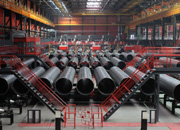 Threeway Steel is known as a professional supplier engaged in manufacturing and distributing a wide range of steel pipe, and our headquarter located the central part of China – Hunan and six associated factories throughout China.
Threeway Steel is known as a professional supplier engaged in manufacturing and distributing a wide range of steel pipe, and our headquarter located the central part of China – Hunan and six associated factories throughout China.
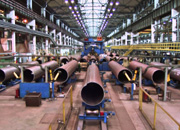 Threeway Steel is known as a professional supplier engaged in designing, manufacturing and distribution of a wide range of steel products with the headquarter located the central part of China – Hunan and six associated factories throughout China.
Threeway Steel is known as a professional supplier engaged in designing, manufacturing and distribution of a wide range of steel products with the headquarter located the central part of China – Hunan and six associated factories throughout China.
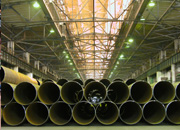 Threeway Steel is known as a professional supplier engaged in designing, manufacturing and distribution of a wide range of steel products with the headquarter located the central part of China – Hunan and six associated factories throughout China.
Threeway Steel is known as a professional supplier engaged in designing, manufacturing and distribution of a wide range of steel products with the headquarter located the central part of China – Hunan and six associated factories throughout China.
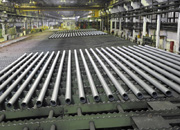 Threeway Steel is known as a professional supplier engaged in designing, manufacturing and distribution of a wide range of steel products with the headquarter located the central part of China – Hunan and six associated factories throughout China.
Threeway Steel is known as a professional supplier engaged in designing, manufacturing and distribution of a wide range of steel products with the headquarter located the central part of China – Hunan and six associated factories throughout China.
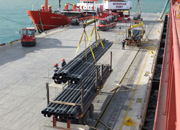 Threeway Steel is known as a professional supplier engaged in designing, manufacturing and distribution of a wide range of steel products with the headquarter located the central part of China – Hunan and six associated factories throughout China.
Threeway Steel is known as a professional supplier engaged in designing, manufacturing and distribution of a wide range of steel products with the headquarter located the central part of China – Hunan and six associated factories throughout China.

